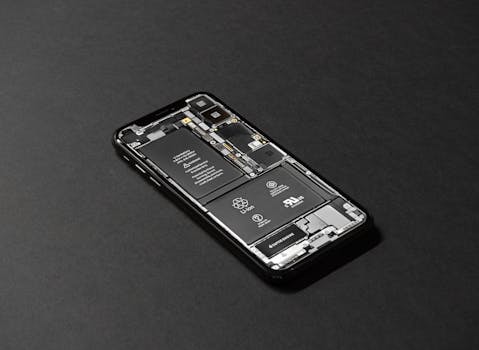+17162654855
+17162654855
NRP Publication News serves as an authoritative platform for delivering the latest industry updates, research insights, and significant developments across various sectors. Our news articles provide a comprehensive view of market trends, key findings, and groundbreaking initiatives, ensuring businesses and professionals stay ahead in a competitive landscape.
The News section on NRP Publication News highlights major industry events such as product launches, market expansions, mergers and acquisitions, financial reports, and strategic collaborations. This dedicated space allows businesses to gain valuable insights into evolving market dynamics, empowering them to make informed decisions.
At NRP Publication News, we cover a diverse range of industries, including Healthcare, Automotive, Utilities, Materials, Chemicals, Energy, Telecommunications, Technology, Financials, and Consumer Goods. Our mission is to ensure that professionals across these sectors have access to high-quality, data-driven news that shapes their industry’s future.
By featuring key industry updates and expert insights, NRP Publication News enhances brand visibility, credibility, and engagement for businesses worldwide. Whether it's the latest technological breakthrough or emerging market opportunities, our platform serves as a bridge between industry leaders, stakeholders, and decision-makers.
Stay informed with NRP Publication News – your trusted source for impactful industry news.
Energy

**
Gelion's Breakthrough: Revolutionizing Li-ion Battery Recycling with Promising New Technology
The global surge in electric vehicle (EV) adoption and the increasing demand for energy storage solutions are fueling a parallel crisis: the looming mountain of spent lithium-ion batteries (LIBs). These batteries, crucial components of everything from smartphones to electric grids, contain valuable resources like lithium, cobalt, and nickel, but improper disposal poses significant environmental and health risks. Australian clean energy technology company Gelion is tackling this challenge head-on, reporting "strong progress" in its innovative battery recycling technology, offering a beacon of hope for sustainable battery management and circular economy initiatives.
The sheer volume of end-of-life LIBs is expected to explode in the coming years. Experts predict millions of tons of spent batteries will require processing, necessitating a dramatic scaling up of recycling infrastructure. Current recycling methods, while improving, often fall short in terms of efficiency, cost-effectiveness, and environmental impact. Many processes are energy-intensive and rely on harsh chemicals, raising concerns about secondary pollution. This highlights the critical need for advanced, sustainable recycling solutions that can efficiently recover valuable materials and minimize environmental impact. Keywords: lithium-ion battery recycling, battery recycling technology, sustainable battery management, circular economy, end-of-life batteries, spent lithium-ion batteries, EV battery recycling.
Gelion's approach stands out from conventional methods. Instead of focusing solely on mechanical and hydrometallurgical processes, the company is leveraging its expertise in its proprietary battery technology – a low-cost, safe, and high-energy density battery chemistry. This unique perspective enables them to develop a recycling process specifically tailored to their battery chemistry, optimizing material recovery and minimizing waste. This targeted approach contrasts with generic recycling methods that often struggle to efficiently process diverse battery chemistries.
Gelion's reported progress underscores several key advantages of their approach:
High Recovery Rates: Their technology promises significantly higher recovery rates of critical raw materials compared to existing methods. This minimizes resource depletion and reduces reliance on mining new materials, which has significant environmental and geopolitical implications.
Reduced Environmental Impact: The process is designed to be environmentally friendly, minimizing the use of hazardous chemicals and reducing energy consumption, contributing to a smaller carbon footprint. This resonates with growing concerns about the overall sustainability of the battery lifecycle.
Cost-Effectiveness: Gelion aims to make its recycling process economically viable, addressing the significant cost barrier often associated with current recycling methods. This economic feasibility is crucial for scaling up and widespread adoption of sustainable battery management practices.
Scalability: The technology is designed to be scalable, meaning it can be easily adapted to handle increasing volumes of spent batteries, making it a feasible solution for the rapidly growing demand.
The success of Gelion's technology could have a profound impact on the burgeoning electric vehicle industry. By providing a cost-effective and sustainable solution for EV battery recycling, Gelion can help accelerate the transition to a cleaner transportation sector. This is critical for meeting climate change goals and reducing reliance on fossil fuels. The implications extend beyond EVs, impacting various sectors that rely on LIBs, including stationary energy storage, portable electronics, and more.
While Gelion's progress is encouraging, several challenges remain. Scaling up the technology to industrial levels requires significant investment and infrastructure development. The company will also need to demonstrate the long-term economic viability and environmental benefits of its approach on a large scale. Regulatory frameworks and supportive policies will be crucial in fostering the adoption of sustainable battery recycling technologies.
Despite these challenges, the potential rewards are substantial. Gelion's innovative approach represents a significant step towards building a truly circular economy for lithium-ion batteries. This is not merely about waste management; it is about securing critical resources, reducing environmental damage, and fostering a more sustainable future powered by clean energy technologies. The company's "strong progress" signals a promising future for sustainable battery management and a significant contribution to addressing the global challenge of responsible battery lifecycle management. Keywords: EV battery recycling, lithium battery recycling, sustainable battery solutions, battery recycling market, circular economy, closed-loop recycling.
Gelion’s commitment to sustainability extends beyond just their recycling technology. Their overall approach emphasizes responsible innovation, aligning with the growing global demand for environmentally friendly and economically viable solutions. This commitment is crucial for attracting investment and securing their position as a leader in the rapidly evolving battery recycling market.
Gelion's reported progress on its innovative lithium-ion battery recycling technology is a significant development in the quest for sustainable battery management. The potential to significantly improve recovery rates, reduce environmental impact, and make battery recycling economically viable is a major step forward. While challenges remain, Gelion's approach offers a promising pathway towards a future where the lifecycle of lithium-ion batteries is truly circular, minimizing environmental impact and maximizing resource utilization. This innovation holds the key to unlocking a truly sustainable future for clean energy technologies.